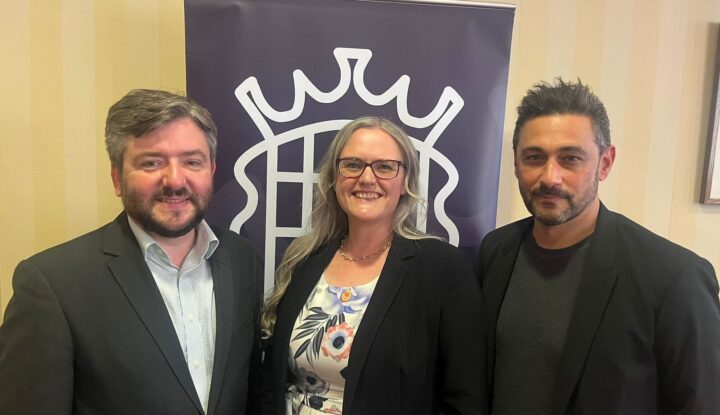Freedom of expression is perhaps the most fundamental foundation of an open society, a human right without which individuality is curtailed and democracy falters. But, as yesterday’s meeting of the All Party Parliamentary Humanist Group (APPHG) illustrated, this right remains under severe threat across our world and faces concerning pressures even in countries that claim to champion it.
As APPHG Chair Lizzi Collinge MP stated in her opening speech, human rights frameworks exist to protect people from harm and discrimination. Blasphemy laws do the opposite. They shield ideas and dogmas, often with brutal consequences for individuals, including in 12 countries around the world, the death penalty. Although England and Wales repealed its blasphemy law in 2008 and Scotland followed last year, Northern Ireland still observes this archaic legislation.
The panel, made up of Humanists UK President Dr Adam Rutherford, emeritus President of the Humanist Association of Nigeria Mubarak Bala, Lord Walney, and expert on non-religious asylum claims Dr Lucy Potter, offered perspectives on this ongoing struggle.
Why free speech matters to humanists
Free expression is central to the humanist approach to life – it is the very engine of scientific discovery, democratic discourse, and human progress. Without the freedom to question, to explore, and to challenge received wisdom, our capacity to understand the world and improve it is severely limited.
When free speech is curtailed: the international picture
We were brought face-to-face with the horrifying reality of blasphemy laws through the story of Mubarak Bala, joining us via Zoom. As President of the Nigerian Humanist Association, Mubarak was imprisoned in 2020, sentenced to 24 years, simply for posting thoughts on Facebook that were deemed ‘blasphemous’. That he joined us is testament to tireless campaigning for freedom of speech. He was released earlier this year and now lives safely in Germany. It’s a cause for relief, but the fundamental injustice of his imprisonment and the fact he cannot live safely in his homeland remains a scar on the conscience of the world. His case is not unique; Humanists International’s research paints a grim picture: 57% of the global population live under blasphemy laws, 12 countries prescribe the death penalty for such ‘offences’, and a further 60 countries impose prison sentences.
De facto blasphemy at home
“Blasphemous” expression is under threat in the UK too. As recent cases in places like Batley and Birmingham show, even in the absence of a legal framework, the spirit of blasphemy accusations can fuel real threats and harassment. Already this year, two arrests have been made following burnings of the Quran. The Advertising Standards Authority recently banned posters by comedian Fern Brady and musician Demi Lovato because they risked offending Christians. These incidents, while a world away from the death penalty faced by others, are still an erosion of our commitment to robust free speech, where causing offence – rather than inciting harm – is treated with undue legal or quasi-legal gravity.
This meeting was a powerful reminder that free speech is far from being a settled victory. The fight requires defending those like Mubarak Bala facing persecution abroad, advocating for the rights of the non-religious seeking safety, and remaining fiercely vigilant against any attempts to curtail legitimate expression here in the UK.
